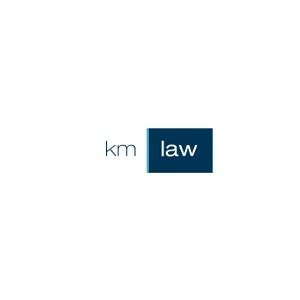Best Estate Planning Lawyers in Tauranga
Share your needs with us, get contacted by law firms.
Free. Takes 2 min.
List of the best lawyers in Tauranga, New Zealand
About Estate Planning Law in Tauranga, New Zealand
Estate planning in Tauranga, New Zealand is a legal process where you make arrangements for the management and disposal of your estate during your lifetime and upon death. This process often involves setting up wills, trusts, powers of attorney, and financial planning to ensure a seamless transition of your assets. It’s a crucial aspect of personal finance planning as it covers wealth distribution, tax mitigation, protection against probate court, and contingency preparations for ill health or incapacitation.
Why You May Need a Lawyer
A lawyer can greatly assist in handling all the complexities associated with estate planning. This includes setting up of wills and trusts, advising on tax implications, ensuring compliance with legal requirements, navigating the laws on gifting, and providing representation in disputes over an estate. If you own a business, real property, or other substantial assets, or have a complex family situation, legal help becomes particularly important to manage your estate effectively.
Local Laws Overview
Estate planning in Tauranga is governed by various New Zealand laws, including the Wills Act 2007, Trusts Act 2019, and Property (Relationships) Act 1976. For instance, the Wills Act outlines the requirements for a valid will. The Trusts Act regulates the setup and management of trusts and provides for trustee duties. The Property (Relationships) Act stipulates how property is divided when a relationship ends. Furthermore, the Inheritance (Family Protection) Act 1955 allows family members to make a claim against your estate if they are not adequately provided for in your will.
Frequently Asked Questions
1. Can I do my Estate Planning without a Lawyer?
While it is possible to do your estate planning without a lawyer, it's recommended to have one, due to the complexity and lasting consequences of these matters.
2. What happens if I don't have a will?
If you die intestate (without a will), your estate will be distributed in accordance with the Administration Act 1969, which may not align with your wishes.
3. What are the tax implications of Estate Planning?
New Zealand does not have a death/estate or gift duty tax, but other tax considerations could still exist, particularly around the sale or transfer of investments, properties or businesses. A lawyer can guide you through these matters.
4. Can I Change a trust once it's set up?
Yes, you can change a revocable trust during your lifetime. However, irrevocable trusts are unchangeable or can be changed only under certain conditions.
5. What happens to my estate if I become incapacitated?
If you have an established Power of Attorney, your attorney can make decisions on your behalf if you become incapacitated. If not, a court may appoint a manager for your estate.
Additional Resources
You can refer to New Zealand Law Society’s guidelines on estate planning, visit the Community Law website for free legal advice or contact the Public Trust for estate management services. The CAB (Citizen Advice Bureau) can also provide free information and assistance.
Next Steps
If you need legal assistance in estate planning, start by listing your assets, debts, and recipients. You can then seek professional advice from a reputable lawyer in estate planning to understand your obligations and options. Regularly review your estate plan to ensure it remains aligned with your wishes and accounts for any major life changes.
Lawzana helps you find the best lawyers and law firms in Tauranga through a curated and pre-screened list of qualified legal professionals. Our platform offers rankings and detailed profiles of attorneys and law firms, allowing you to compare based on practice areas, including Estate Planning, experience, and client feedback.
Each profile includes a description of the firm's areas of practice, client reviews, team members and partners, year of establishment, spoken languages, office locations, contact information, social media presence, and any published articles or resources. Most firms on our platform speak English and are experienced in both local and international legal matters.
Get a quote from top-rated law firms in Tauranga, New Zealand — quickly, securely, and without unnecessary hassle.
Disclaimer:
The information provided on this page is for general informational purposes only and does not constitute legal advice. While we strive to ensure the accuracy and relevance of the content, legal information may change over time, and interpretations of the law can vary. You should always consult with a qualified legal professional for advice specific to your situation.
We disclaim all liability for actions taken or not taken based on the content of this page. If you believe any information is incorrect or outdated, please contact us, and we will review and update it where appropriate.

















